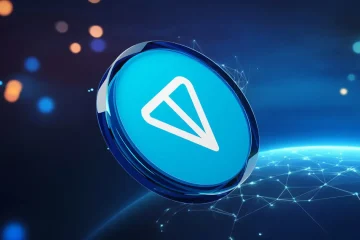In the vast expanse of the digital realm, a new horizon has emerged, forever transforming the landscape of education. Welcome to the era of online learning, where knowledge knows no boundaries and classrooms transcend physical limitations. With the advent of cutting-edge technology, the world of education has undergone a revolutionary shift, and students and educators alike are embarking on a thrilling journey through the virtual realm. In this article, we will delve into the intricacies of online education, uncovering its benefits, challenges, and the future it holds.
The Rise of Online Education
As technology continues to advance at an unprecedented pace, traditional educational models are undergoing a significant transformation. Online education has emerged as a powerful force, empowering learners from all corners of the globe to access quality education with unparalleled convenience. The rise of Massive Open Online Courses (MOOCs) and virtual learning platforms has democratized education, making it accessible to a broader audience.
One of the remarkable aspects of online education is its flexibility. Learners now have the freedom to tailor their learning experience according to their individual needs and schedules. Whether it’s pursuing a degree, learning a new skill, or gaining knowledge in a specific field, the virtual landscape offers a plethora of options. Additionally, online education breaks down geographical barriers, allowing students to connect with esteemed professors and peers from around the world, fostering a global learning community.

However, as with any transformative phenomenon, online education also poses challenges. While it offers flexibility, it demands self-discipline and time management skills from learners. The absence of physical classrooms and face-to-face interaction requires students to stay motivated and proactive in their studies. Moreover, access to reliable internet connections and suitable technological devices can still be a hurdle for many individuals, particularly in underserved areas. Nonetheless, the benefits and opportunities presented by online education outweigh these challenges, and its potential for growth is vast.
Unlocking the Future of Education
The virtual landscape of online education holds immense potential for shaping the future of learning. As technology evolves, so does the online education sphere. Virtual reality (VR) and augmented reality (AR) are transforming the way students engage with educational content, offering immersive and interactive experiences. Imagine exploring the depths of the ocean through a VR simulation, or dissecting a human body in a lifelike AR environment. These emerging technologies have the power to revolutionize education, bringing abstract concepts to life and enhancing the overall learning experience.

Furthermore, artificial intelligence (AI) is poised to play a crucial role in personalized online education. AI-powered algorithms can analyze vast amounts of data, understanding each student’s learning patterns and preferences. This enables educators to tailor instruction to individual needs, providing personalized feedback and recommendations. Adaptive learning platforms, powered by AI, are already making significant strides in creating dynamic and customized learning paths for students, revolutionizing the traditional one-size-fits-all approach.
Conclusion
As we chart new horizons in the virtual landscape of online education, we are witnessing a paradigm shift in the way knowledge is acquired and disseminated. The rise of online education has opened doors to limitless possibilities, empowering learners worldwide to embark on transformative journeys of self-discovery. While challenges exist, the benefits and opportunities presented by online education far outweigh them. The future of education is being shaped in the digital realm, where technology serves as a catalyst for innovation and growth. So, seize the opportunity, dive into the virtual realm, and embrace the wonders of online education as we navigate the uncharted waters of learning in the 21st century.


